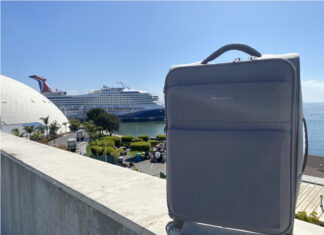If you’ve never taken a cruise before, you would be forgiven for wondering if it is a safe way to vacation. After all, if you only follow the industry casually, cruising might catch your attention when news stories covering negative events (passenger fights, illnesses aboard, or even passengers going missing) make the headlines.
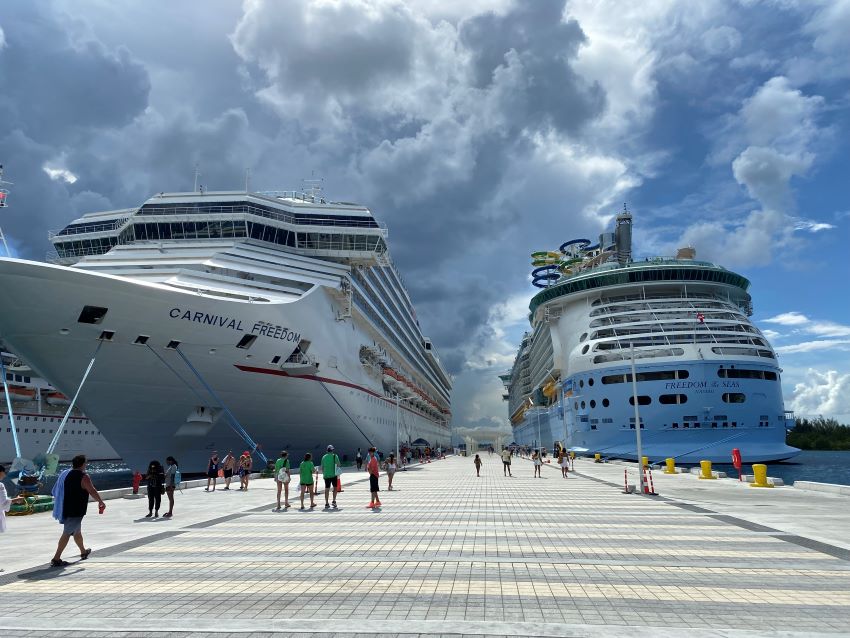
That can make it seem like it’s a big risk to take a cruise.
People that have sailed before know that the truth is very different. Overall, cruising is a safe way to travel, and we will dive into some of the data and details behind that belief below.
For more on if cruises are safe, keep reading…
What It Means to Be ‘Safe’ on a Cruise
Before getting too far, it’s important to explain that when it comes to safety, it can actually entail different things to different people.
When some ask about safety, they mean being a victim of crime during the cruise. For instance, will they be robbed or hurt while visiting a port in Mexico? Or might they be a victim of theft or assault while on the ship? There’s little doubt that these kinds of thoughts are scary, but thankfully the instances are also rare.
Another way that some are concerned about safety is more about health and well-being on the ship. After all, while the pandemic has largely passed, it was an enormous story in cruising for more than two years. Stories of cases on ships were reported, including instances of passengers quarantined on the ship in the early days when no one quite knew how to deal with the virus. Even beyond that, stories of norovirus and stomach bugs have made headlines from time to time.
Finally, when people wonder if cruising is safe, they might have worries that come with being on the open ocean. Things like hitting a nasty storm, falling overboard, a breakdown happening to the ship, or even the ship sinking. These types of events definitely make big headlines when they do happen, but as you’ll see, they are also extremely rare. Still, if it’s something you are worried about, then it deserves some attention and explanation.
Crime Safety on Cruises
When it comes to being a victim of crime, statistics show that serious crime is relatively rare. Still, it can happen. That said, our opinion is that many people are safer on a cruise ship than in their hometown.
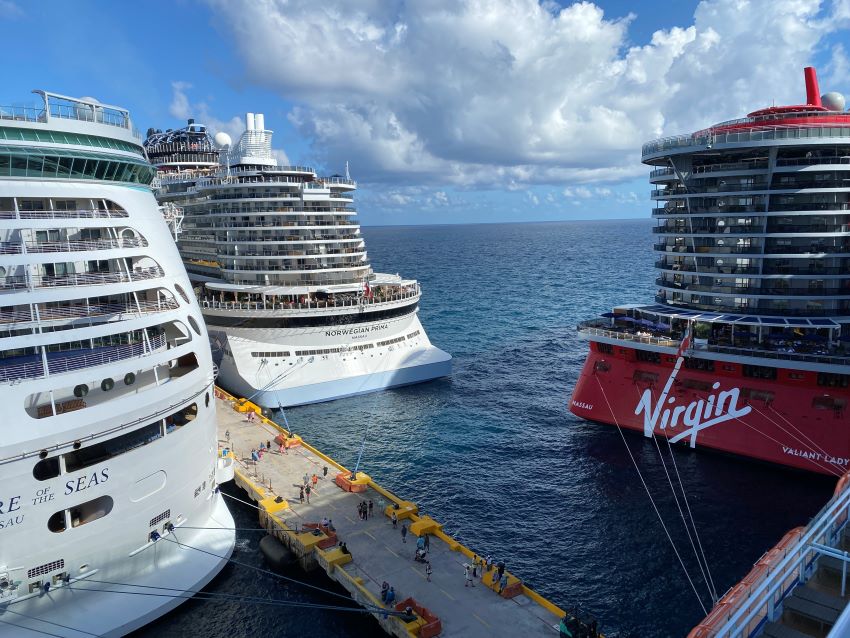
Crime on Cruise Ships
Wondering how much crime occurs on cruise ships? It does happen, but it’s also a small number of major offenses that are reported, which should help put you at ease.
According to data from industry group Cruise Lines International Association (CLIA) roughly 11.3 million passengers sailed North American destinations in 2022, including the Caribbean, Alaska, Hawaii, and Mexico. This represents by far the busiest cruise area in the world, with trips from the United States to the Caribbean and Bahamas making up the lion’s share of passenger counts.
Ships embarking or disembarking in the United States adhere to something called the Cruise Vessel Security and Safety Act (CVSSA). In the case of crime on ships, this law requires that cruise lines report certain major crimes to the FBI. Crimes to be reported include homicide, assault with serious injury, theft of over $10,000 and sexual assault, among others.
Each quarter, these statistics are compiled and released to the public to give insight on reported crimes on cruise ships among both passengers and crew. In general, they show a low number of incidents given the millions of passengers sailing each year.
The total reported figures for all of 2022 include:
- Homicide: 0
- Suspicious Death: 1
- Missing U.S. National: 3
- Kidnapping: 0
- Assault w/ Serious Bodily Injury: 7
- Firing or Tampering With Vessel: 0
- Theft > $10,000: 5
- Sexual Assault: 87
Note that these figures don’t include all crimes that might have happened on a cruise ship. For instance, theft of less than $10,000 isn’t included. And there may be crimes that go unreported.
By far the biggest issue reported is sexual assault, with roughly 90 reported cases among more than 11 million passengers. In that regard, we think it pays to be vigilant even while enjoying your vacation, but the total numbers are small.
So while crime does happen on ships — and it definitely makes headlines — the statistics say that it’s a pretty safe way to travel.
Crime in Ports of Call
Of course, every cruise really consists of two different vacations. There’s the time you spend on the ship (which is actually the majority of the vacation) and then the time you spend in ports of call. So what about crime there?
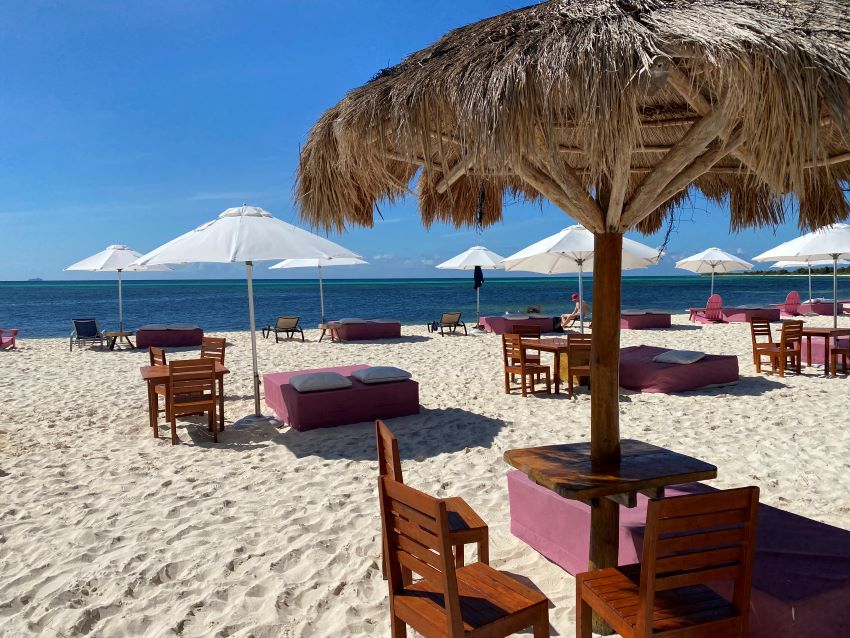
Obviously crime rates will vary from port to port. In fact, ports on your cruise can range from islands operated by the cruise line and for the enjoyment only of passengers to those that are completely independent of the cruise line. That can make it tough to give blanket statistics about crime in ports.
For example, Mexico has seen sordid headlines, including shooting on beaches, kidnappings, and drug-related violence. The U.S. State Department has a Level 2 warning on travel to The Bahamas, stating that “the majority of crime occurs on New Providence (Nassau) and Grand Bahama (Freeport) islands,” which are both popular cruise destinations.
To be sure, ports can see crime. However, crime against tourists (specifically cruise passengers), seems rare. In general, passengers tend to stay in safer tourist areas, and they are almost always visiting only during daylight hours. Plus, port areas have a strong interest in keeping tourists safe as they provide vital income to port areas.
Take Mexico, where literally tens of millions of Americans visit each year.
“In 2021, 75 U.S. citizens died by homicide in Mexico, according to the State Department,” said an article from NewsNation asking about the safety of visiting the country. “That represents a small fraction of the more than 28.8 million Americans who went to the country over the same time period. Using those figures, the murder rate of U.S. citizens in Mexico was around 0.26 per 100,000 visitors, significantly lower than the rate in the United States.”
The best advice is to exercise good judgment, using common sense in foreign ports. This includes not traveling in unfamiliar areas alone, not overindulging in alcohol, and also not wearing flashy jewelry or showing wads of cash. Millions travel to these spots each year without incident.
Health Safety on Cruise Ships
When it comes to the question of being safe on a cruise, perhaps nothing has seen as much attention recently as your health. In the beginning of the pandemic, outbreaks on cruise ships were widely reported. It even led to a pausing of the industry until new protocols were put in place to combat the spread.
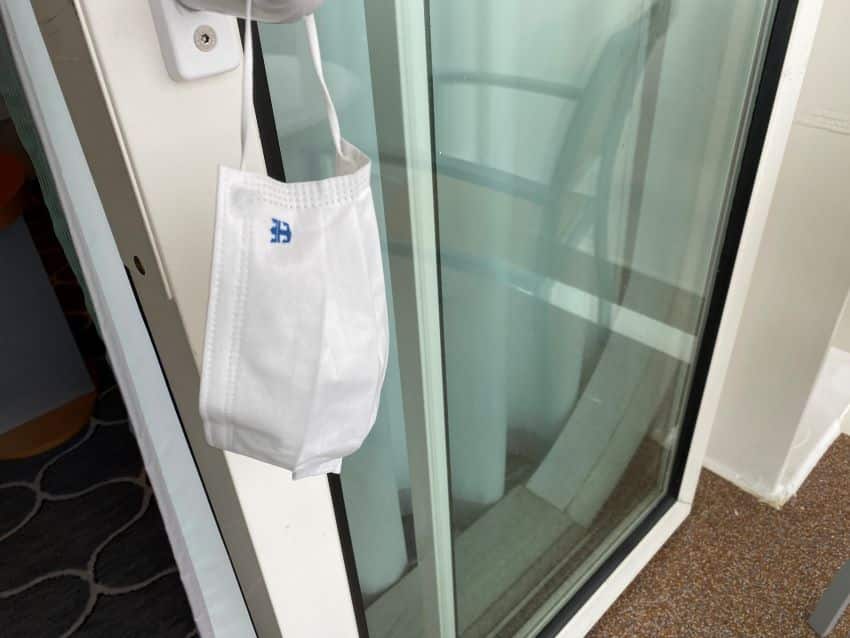
And before the pandemic, things like stomach illness were sometimes issues on ships. Then there are issues like slips and falls and even accidental drowning in cruise ships pools. Fortunately, these are rare. Unfortunately, they do happen. So is cruising safe when it comes to health?
Let’s start with illness as this has seen a lot of headlines in recent years. Truth is that anywhere that you get people within close proximity of each other, there is the risk for illness to spread.
For example, even when protocols for battling Covid on cruise ships were in place (such as masking and required vaccinations), reports the cruise ships provided to the CDC showed that cases were still on board, though specific numbers were not disclosed.
Now that the pandemic has passed, ships have returned to normal protocols, just like most of society. While it is possible to get Covid on a cruise, its largely no longer causes the disruption it once did.
Norovirus and other stomach bugs are notorious for spreading through schools, offices, and yes, cruise ships. However, you likely have heard of them more due to reporting requirements from the federal government that aren’t in place for other entities.
The CDC posts regular updates on cruise ships seeing gastro outbreaks. Their “Outbreak Updates for International Cruise Ships” page keeps tabs on which ships have seen issues.
Cruise lines are required to file a report on gastro illness before arriving in port — even if there are zero cases. The health agency posts outbreaks to their website when ships under their jurisdiction have 3% or more of passengers or crew reporting symptoms.
For as much publicity as outbreaks do get, ships reaching that 3% threshold are relatively rare. Of all the cruises covered by the CDC’s rules, roughly 10-12 outbreaks are reported each year. That represents a tiny fraction of all sailings.
In fact, the CDC website says that “acute gastrointestinal illness is relatively infrequent on cruise ships” and one reason that many people associate the virus with cruising is because health officials track illness on ships, meaning “outbreaks are found and reported more quickly on a cruise ship than on land.”
Still, it can happen. That’s why whenever you cruise, you’ll see the crew constantly cleaning and sanitizing. For your part, doing things like washing your hands and avoiding common surfaces when possible is also a good idea.
As for your physical health, accidents like slip and falls, and even some drownings have taken place on ships. To counter this, you’ll find measures handrails on every staircase, along with high-grip footing on treads. Most cruise lines also have lifeguards on duty to monitor pools and offer life jackets for kids for free. It’s still a good idea to keep an eye on kids near any body of water.
Safety of Being on the Open Ocean
Finally, when it comes to the question of whether cruises are safe, you might have concerns about some of the most headline-grabbing incidents in cruising. We’re talking about the stories that make national headlines, such as people falling overboard, ships breaking down in the open ocean, storms rocking cruise ships, and even a ship sinking.
Is this something that you need to worry about on vacation?
Falling Overboard
Let’s start with a phobia of many people — falling overboard. Frankly, the chances of this happening accidentally are almost zero. Railings surround the entire ship and these railings are all at a considerable height. On an adult male, they typically come up to around mid-torso.
So what about the stories you hear when people do fall over? Sadly, these stories are often said to involve passengers climbing on railings, going over on purpose, or suspicious circumstances late at night.
According to Newsweek, “American cruise expert Dr. Ross Klein, who keeps a database regarding guests and crew members who have gone overboard either to an accident, alcohol intoxication, foul play, or suicide, estimated that there have been at least 375 documented accidents involving people falling overboard between 1995 and December 2022.”
That comes out to about 13 people per year. For reference, CDC data says that about 28 people die each year from lightning strikes in the United States. And about 26 people die in U.S. national parks from falls in an average year.
Rough Seas & Hurricanes
Worried about hurricanes or other major storms while on the ship? From time to time you will see some hair-raising videos of cruise ships in heavy seas. Hurricanes are also common in the Caribbean where cruises sail.
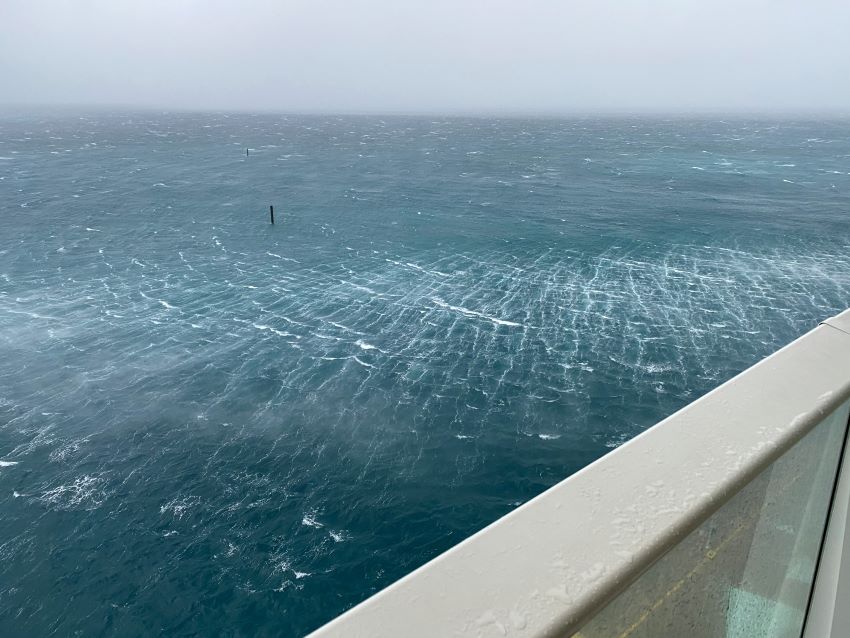
In general, your chances of seeing heavy seas are fairly low. For one, cruise ships today are built to be incredibly stable. Even in moderate swells you may not feel much. But ships also don’t make it a habit of sailing through storms.
Modern forecasting — along with the ship’s mobility — mean that cruise lines can anticipate and avoid most instances of bad weather (especially major storms like hurricanes).
Personally, after dozens of cruises we have been caught in squalls but never in anything where there was more than a gentle rocking. Still, if you’re going to be at sea, it’s always possible, just know it’s not common.
Breakdowns & Sinkings
And what about the ship breaking down or even worse, sinking? Many people remember the tragic Costa Concordia sinking in 2012. Others may remember the Carnival Triumph fiasco where an engine room fire left the ship crippled at sea, complete with toilets backing up. Both incidents were widely reported, while occasional other incidents make news, such as ships seeing a fire.
We don’t want to downplay the seriousness of something happening in the open ocean. It would no doubt be scary if it were to happen to you. However, these issues are rare. To our knowledge, Costa Concordia is the only modern cruise ship from a major line to actually sink in recent history.
Major breakdowns that impact a cruise happen more, but still are infrequent. A couple of other things to keep in mind is that ships come equipped with emergency equipment including life jackets for all those on the ship and lifeboats. Crew is also trained on how to respond with emergencies. And before you set sail, you’ll participate in a muster drill to go over emergency procedures.
If there were to be an incident, cruise ships — especially in the Caribbean — stick to common routes and destinations. That means even though you might not realize it, there are other ships usually relatively close by that could render aid if needed.
Bottom Line: Are Cruises Safe?
Being in the industry, we’ve personally cruised extensively ranging from Alaska to Mexico to The Bahamas.
While we don’t want to discount incidents that do happen, we have never felt unsafe on a cruise or in a port of call. The statistics seem to bear this out.
Crime figures — while not all encompassing — are low given the millions that set sail each year. Illness can happen on a ship (there’s no denying that), but due to reporting requirements for cruise ships, they are also more well-known than if they were to happen somewhere on land. Falling overboard? As mentioned above, not only is it more common to be struck by lightning, but often other factors come into play that lead to this.
Our advice is that if you use common sense, there is almost no safer vacation you can take. Yes, things do happen. With millions traveling across thousands of cruises each year, there will be incidents. They are also more likely to be heard about versus events at hotels or other resorts. But we wouldn’t let that worry you from having a fun vacation.
More Resources:
- U.S. Department of Transportation Cruise Line Incident Reports
- CDC Outbreak Updates for International Cruise Ships
- CDC Vessel Sanitation Program (Health Inspection Scores)












